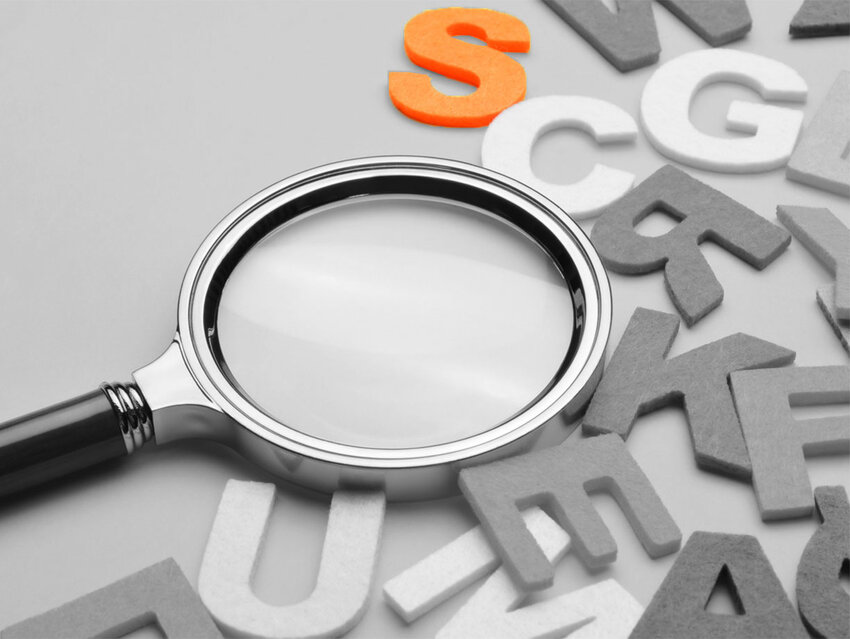We’ve already taken a look at the most frequently used “X,” “Y,” and “Z” words, as well as the most common vowel words, so now we’re back with another deep dive into language frequency, this time with the letter “S.” Perhaps unsurprisingly to anyone who has played Scrabble, or shouted at the TV during Wheel of Fortune, some common “S” words rank among the top 100 most frequently used words in the entire modern English language.
Before we dig in, a quick refresher course: The Oxford English Dictionary (OED) characterizes frequency of word usage into bands (or groups) numbered one through eight, with eight being the highest frequency. While many of the most common “XYZ” words fell into the less common groupings of band four and below, many of the most common “S” words fall into frequency band eight.
Say
“Say” is the most basic way to introduce speech in the modern English language. The verb has many usages listed in the dictionary, but the first is “utter words so as to convey information, an opinion, a feeling or intention, or an instruction.” It comes from the Middle English “seien,” from the Old English secgan, meaning “to utter, inform, speak, tell, relate.” It’s in frequency band eight, which includes words that generally occur about 1,000 times per million words in modern English — but “say” is frequent even within that grouping. According to the OED, it is one of the 100 most common words in English (alongside mainstays including “other,” “than,” “there,” and “when”).
See
At its most fundamental, to see is “to perceive with the eyes or discern visually.” However, the verb “see” also can be used figuratively. Like “say,” it has Old English and Germanic roots, coming from the Old English seon, meaning “be or become aware of by means of the eyes; look; behold.” Also like “say,” it is a frequency-band-eight word and one of the 100 most commonly used words in modern written English.
She
“She” is the subjective case of the feminine third-person singular pronoun. In simpler terms, it’s the word used to identify a woman, girl, or female animal. While the original Old English word was heo or hio, the pronunciation eventually became too similar to the masculine “he,” which led to the formation of “she” around the early 14th century. This frequency-band-eight word is one of the 50 most common words in the modern English language, similar in frequency to “its,” “out,” “take,” and “what.”
So
“So” is a multitasker in the English language; it can be used as an adverb, adjective, conjunction, or interjection, depending on the context. In general, it’s used to signify and relate extents and values. Like many of the basic building blocks of the English language, this frequency-band-eight word has Old English and Germanic roots.
Some
“Some” can be used as a determiner, pronoun, adverb, or adjective — in general, it refers to an unspecified value greater than one. It was used as a pronoun beginning in 1100, and then with greater frequency and in combination with other words as the centuries wore on (“someone,” “somebody,” “somehow,” for example). The frequency-band-eight word joins many of the words on this list — as well as other common words such as “also,” “him,” “my,” and “when” — as one of the 100 most frequently used words in modern English.
Such
“Such” is a signifying word — in this case, “a demonstrative word used to indicate the quality or quantity of a thing by reference to that of another or with respect to the effect that it produces.” This commonly used, frequency-band-eight word appeared in 1200 from the Old English swylc, or swilc, meaning “just as, in like manner; as if, as though; such as one.”
Should
Less frequently used than many of the words on this list, “should” is still fairly common, identified by the OED as a frequency-band-seven word (occurring about 200 times per million words in modern English). It’s one of the 500 most common words in the language, similar to words such as “five,” “growth,” and “toward.” It’s technically the past tense of the more archaic “shall,” but in general, it’s a verb used to indicate obligation, duty, or correctness, typically when criticizing someone else’s actions. “Should” began to replace “shall” around the time the meaning of “shall” shifted from obligation to include a sense of future tense in Middle English.
System
A system is a set of things working together, either as parts of a mechanism or of an interconnecting network. “System” appeared in English in the 1610s to mean “the whole creation, the universe,” from the Late Latin systema, meaning “an arrangement, system.” The sense of “set of correlated principles, facts, ideas” is from the 1630s. It is a frequency-band-seven word, and typically occurs about 700 times per million words in modern written English.
Feature image credit: s-cphoto/ iStock

